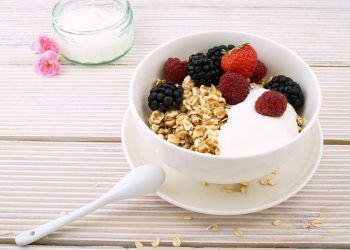7 Reasons Celery Juice Boosts Blood Pressure Health
Midday slump meets your favorite mug, and rather than reaching for coffee, you opt for a vibrant green juice instead. Celery juice has surged in popularity, hailed not just for its refreshing flavor but also its potential health benefits. You might find yourself wondering: can this glowing liquid really support your blood pressure health? Let’s dive into seven compelling reasons celery juice deserves a spot in your daily routine.
Contents
1. Hydration and Its Impact on Blood Pressure
The simple act of staying hydrated can significantly affect your blood pressure. Celery is composed of about 95% water. When you’re well-hydrated, your blood volume increases, and this can lead to better circulation. A study by Kauffman et al. (2020) in the Frontiers in Nutrition emphasizes the importance of hydration in regulating blood pressure. Proper hydration helps your kidneys function properly, which in turn balances sodium levels and manages blood pressure effectively.
While celery juice is an excellent way to hydrate, it’s also wise to remember that relying solely on juice may not be sufficient for your total liquid intake. Whole celery, with its fiber content, also plays an important role, so consider incorporating both.
2. Rich in Electrolytes
Celery juice is rich in essential electrolytes such as potassium and magnesium. Potassium is crucial for heart health as it helps to relax the blood vessel walls, thus lowering blood pressure. A review in the International Journal of Hypertension (2018) notes that increasing potassium intake can significantly reduce hypertension in individuals, emphasizing the food’s role alongside traditional treatments.
Incorporating celery juice can be particularly beneficial for those with hypertension, especially in a society where processed foods loaded with sodium dominate our diets. However, balance is key. Overconsumption of potassium through supplements can have adverse effects, particularly in those with kidney issues, so moderation is essential.
3. Anti-Inflammatory Properties
Chronic inflammation is a known contributor to various health issues, including hypertension. Celery juice contains antioxidants such as flavonoids and vitamin C, which possess anti-inflammatory effects. A study by Oboh et al. (2016) in the Journal of Functional Foods indicates that the polyphenolic compounds found in celery can help to reduce inflammation and oxidative stress.
By regularly consuming celery juice, you may benefit from these properties, potentially lowering your risk of hypertension. Still, it’s essential to approach this with a holistic view—relying solely on celery juice won’t replace a balanced diet or medical advice.
4. Natural Source of Nitrates
Celery is a natural source of dietary nitrates, which can help improve blood vessel function. Nitrates convert to nitric oxide in the body, a compound known to dilate blood vessels and lower blood pressure. A meta-analysis by Hobbs et al. (2020) in Hypertension Research supports the use of dietary nitrates in managing hypertension.
Incorporating celery juice into your diet could be a tasty method to leverage these benefits. However, it’s worth remembering that dietary nitrates are also found in other vegetables, such as beetroot and spinach, so diversifying your vegetable intake is beneficial for optimal health.
5. Aids in Weight Management
Obesity is a significant risk factor for hypertension, so managing your weight is vital. Celery juice can be a great low-calorie option that may help you feel full without contributing many calories. Its high water and fiber content can provide a mild sense of satiety. Research by Jansen et al. (2018) published in the American Journal of Clinical Nutrition indicates that fiber-rich foods can benefit weight management and, consequently, blood pressure levels.
Consider using celery juice as part of a balanced diet to support weight management. Just be cautious of adding sugars or other high-calorie ingredients into your juice, which may undermine its benefits.
6. Supports Vascular Health
Healthy blood vessels are critical for maintaining blood pressure. Celery juice contains compounds that support vascular health by improving endothelial function. A study in the Journal of Agricultural and Food Chemistry by Li et al. (2019) indicates that the antioxidants and anti-inflammatory properties found in celery can foster better endothelial health.
By incorporating celery juice, you may enhance your vascular system’s resilience, which is especially beneficial as you age. However, like with many health practices, support from a varied diet and lifestyle choices will yield the best long-term benefits.
7. Easy to Incorporate into Your Diet
One of the unique benefits of celery juice is its convenience. It blends easily with other fruits and vegetables, making it a simple addition to your morning routine or afternoon pick-me-up. Additionally, the act of juicing can promote mindfulness—an essential aspect of health that is often overlooked.
While it’s easy to pour a glass of celery juice, ensure that you also enjoy the whole vegetable in salads, soups, or as snacks. This variety can enhance the intake of dietary fiber and other essential nutrients.
FAQs
1. Can celery juice replace medications for high blood pressure?
While celery juice can offer benefits for blood pressure health, it should not replace prescribed medications. Always consult your healthcare provider before making changes to your treatment plan.
2. Is there a recommended daily amount of celery juice?
There’s no specific recommendation for celery juice, but a standard serving can be around 8 ounces. Integrating it into a balanced diet is key to achieving potential health benefits without overconsuming it.
3. Are there any side effects associated with drinking celery juice?
For most people, celery juice is safe. However, excessive consumption can lead to gastrointestinal discomfort or may interact with certain medications due to its high potassium content.
4. Can I make celery juice at home?
Absolutely! Juicing fresh celery at home is surprisingly simple. Just wash, chop it up, and run it through a juicer. You can also mix in other fruits or vegetables to enhance flavor and nutrition.
Conclusion
Incorporating celery juice into your daily routine can support your blood pressure health in various ways. From hydration and electrolytes to anti-inflammatory properties, it’s a fantastic addition to a balanced diet. However, it’s essential to remember that no single food or drink can act as a cure-all. Complementing your celery juice habit with a varied, nutrient-rich diet and consulting with healthcare professionals will yield the best results. So, why not pour a glass and raise your health game today?
References
- Kauffman, J. et al. (2020). The role of hydration in cardiovascular health. Frontiers in Nutrition. URL: https://www.frontiersin.org/articles/10.3389/fnut.2020.00001/full
- Oboh, G. et al. (2016). Functional properties of dietary antioxidant glycosides: A review. Journal of Functional Foods. URL: https://www.sciencedirect.com/science/article/pii/S1756464616307971
- Hobbs, D. A. et al. (2020). Dietary nitrate supplementation and cardiovascular health: A consumer guide. Hypertension Research. URL: https://www.nature.com/articles/s41440-020-0460-y
- Jansen, W. et al. (2018). Dietary fiber and weight management: A review. American Journal of Clinical Nutrition. URL: https://academic.oup.com/ajcn/article/108/5/1265/5037091
- Li, M. et al. (2019). Evaluation of the effects of celery juice on endothelial function. Journal of Agricultural and Food Chemistry. URL: https://pubs.acs.org/doi/10.1021/acs.jafc.9b04980
Get Your FREE Natural Health Guide!
Subscribe now and receive our exclusive ebook packed with natural health tips, practical wellness advice, and easy lifestyle changes — delivered straight to your inbox.














